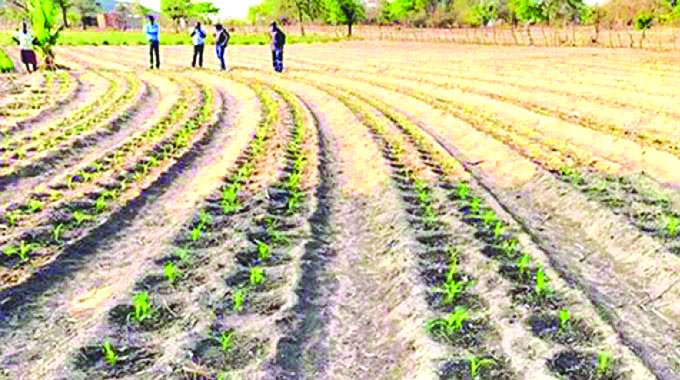2,6 million households sign into Pfumvudza
Source: 2,6 million households sign into Pfumvudza | The Herald
Elita Chikwati Agriculture Reporter
AT least 2,6 million small-scale farming households signed into Pfumvudza/Intwasa, the conservation-agriculture system under the climate proofed Presidential Inputs Scheme Programme, for this farming season.
There was an initial target of 2,3 million households in communal, A1, small scale commercial farming and old resettlement sectors for cereals, oil seeds and legumes. But the take-up has been great that this has now been surpassed as more farmers sign up for the programme after last season’s roaring success.
The scheme adopts conservation agriculture based on the principles of minimum soil disturbance, so holing out rather than ploughing, plus mulching to conserve moisture, doing all operations at the right time, and adoption of good agronomic practices.
According to the latest statistics from the Ministry of Lands, Agriculture, Fisheries, Water and Rural Development, so far 2 613 703 households adopted Pfumvudza to produce food crops, while 90 776 households are producing cotton under the programme.
By last week, 449 424 had prepared five plots, 372 637 had prepared four plots, 643 231 had prepared three plots, 487 215 two plots and 656 196 have prepared one plot, enough to grow the family’s yearly maize. Inputs are supplied once the household has completed training and done the preparation with the quantity of inputs scaled to the number of plots.
On Pfumvudza cotton, 90 776 households have done planting holes, 8 549 have gathered mulch and 389 have applied lime. A total of 429 881 cotton farmers have so far been trained on Pfumvudza, 218 339 women and 211 542 men.
Under the Pfumvudza programme, farmers can prepare up to five plots in potential area with three of these for maize, one for household food and the other two for commercial intentions. One plot will be put under soyabeans, while another will be put under sugarbeans or groundnuts or cowpeas.
In low rainfall agro-ecological regions, the five plots still see three plots under cereals (maize/sorghum or pearl. millet). One maize plot is for food security of the household and the other two plots under traditional grains for commercial intentions. One plot will be put under sunflower or castor bean, while another will be put under cowpeas or groundnuts for supporting household food security as well as supporting cereal and legume rotations.
The input packages include seed, lime, basal fertiliser, top dressing, folia fertilisers, and pesticides.
Pfumvudza is aimed at ensuring the smaller farms are run as proper businesses, with the farmers retaining what they need for on-farm consumption and selling the rest of the harvest. The training includes business areas, such as how to keep proper records.
The programme which started for cereals has now been spread to cotton.
Some farmers have also joined the programme after seeing the positive results from last season on their neighbours’ land.

